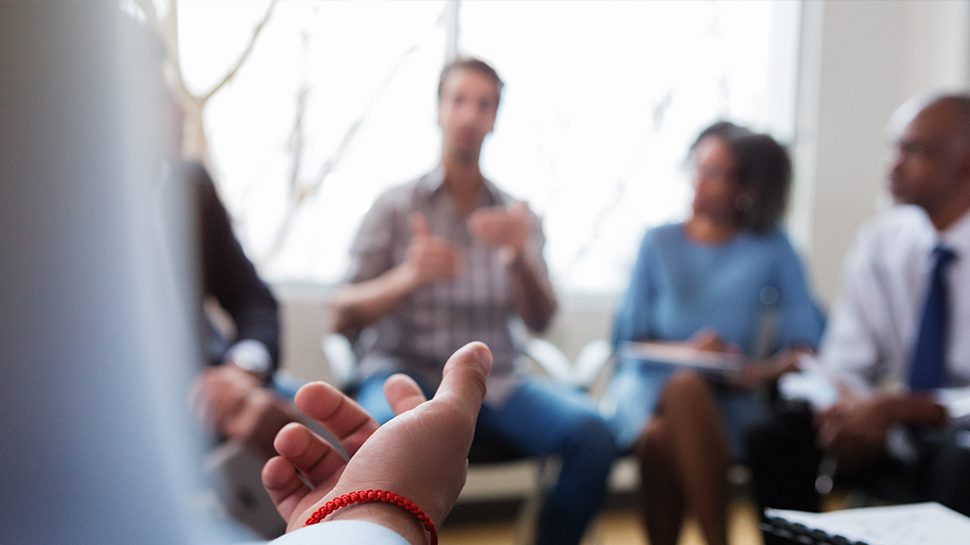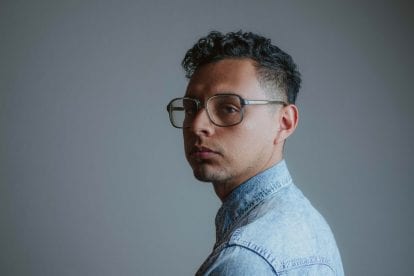
Klonopin Addiction Rehab
Klonopin is a benzodiazepine, a class of medications prescribed primarily for people with anxiety disorders. They are potent and effective if used for a limited time, but can be addictive if taken recreationally or for longer (or in larger amounts) than originally prescribed. People who become addicted to Klonopin require detox followed by addiction treatment, and if they get the help they need they have an excellent chance at recovery.
What is Klonopin Addiction?
Klonopin is the brand name for clonazepam, which belongs to the benzodiazepine class of drugs. Klonopin (clonazepam) is prescribed primarily as a remedy for anxiety disorders, and it can be especially helpful for people with panic disorder who need immediate help controlling their disabling symptoms.
Klonopin enhances the activity of a neurotransmitter called GABA, which reduces the intensity of anxiety symptoms while causing the muscles of the body to relax. It has anticonvulsant properties as well and is sometimes used to treat seizures.
While Klonopin can be effective as a short-term antidote for anxiety, its potency comes with a price: Klonopin is highly addictive and should never be used in ways inconsistent with its prescription.
Klonopin Addiction Facts and Statistics
When consumed safely and in moderation, Klonopin and the other benzodiazepines can effectively produce the desired results for which they’re prescribed. But their ubiquity is alarming, and the dangers associated with their misuse cannot be ignored:
- According to the National Institute on Drug Abuse in 2019, 16 percent of overdose deaths involving opioids also involved benzodiazepines, common benzodiazepines include Klonopin.
- As reported by the National Institute on Drug Abuse a study of over 300,000 continuously insured patients receiving opioid prescriptions between 2001 and 2013, the percentage of persons also prescribed benzodiazepines rose to 17 percent in 2013 from nine percent in 2001
- Less than one percent of Americans above the age of 12 suffered from a tranquilizer use disorder in 2016. But this still represents 618,000 people who were addicted to Klonopin or similar medications.
- Benzodiazepines are implicated in 30 percent of all overdose deaths, and 23 percent of those who died from opioid overdoses had been mixing them with benzodiazepines.
- In 2010, 62,811 Americans visited hospital emergency rooms suffering the ill effects of Klonopin usage.
Effective World-Class Treatment for Klonopin Addiction at Alta Mira
At Alta Mira, you’ll be able to concentrate completely on your Klonopin recovery without outside distractions or concerns getting in the way. Treatment during your stay in our luxury Klonopin rehab will be in essence your full-time job, and your efforts to heal will be fully supported by every member of your treatment team and may include:
- Medically-supervised detox
- Individual behavioral therapy
- Group therapy and peer support
- Family therapy
- Educational programs
- Introduction to holistic healing practices
- Intensive life skills and coping skills workshops
- Fitness, recreation, and nutrition programs
- Stress management and relaxation strategies
- Relapse prevention training
Relapse prevention is always a major point of emphasis at Alta Mira. During the course of your treatment, you’ll work with our exceptional team to identify events, circumstances, and stressors that have triggered your past Klonopin use. We’ll help you make lifestyle changes that can aid your efforts to avoid temptation, and provide invaluable instruction that can help you learn to manage your feelings and emotions more effectively.
Hope is Just a Phone Call Away
866-922-1350Signs and Symptoms of Klonopin Addiction
Like all pharmaceutical medications, Klonopin can produce unpleasant side effects even if used as prescribed. But when Klonopin is being abused the normal side effects may be exaggerated and experienced on a daily basis.
The signs of Klonopin use and abuse include:
- Drowsiness
- Dizziness or lightheadedness
- High blood pressure
- Constipation
- Tremors, shakiness
- Loss of balance and coordination
- Slurred speech
- Blurry vision
- Sleeplessness, or excessive sleeping
- Depression
- Disorientation, confusion
- Memory problems
- Hallucinations and delusions
When Klonopin is taken for too long and in large amounts, it will become less effective against anxiety. If consumption continues despite a failure to achieve the intended results, that is a sure sign that addiction is imminent if not already a reality.
Klonopin Addiction Causes and Risk Factors
Anyone can succumb to Klonopin dependency if they exceed recommended doses or use it for longer than prescribed. Nevertheless, there are certain risk factors that increase the odds of addiction in people who start using Klonopin:
- Family history of drug dependency. Genetic factors and environmental exposures to drugs at young ages are both implicated.
- A highly stressful lifestyle. Medications like Klonopin can provide some relief from stress, for a while. But habitual use of drugs as a stress antidote can easily lead to drug dependency.
- Using Klonopin recreationally. Most people who take benzodiazepines for medical conditions do so responsibly. But recreational use comes without instructions or limits and is therefore dangerous.
- Mixing Klonopin with other mind-altering substances. Too often recreational users combine Klonopin with alcohol or other drugs, like prescription opioids, and that increases the chances of substance use disorders dramatically.
- Self-medicating or doctor shopping. People who use Klonopin without consulting a physician, or who try to get extra prescriptions beyond their initial dosage by visiting multiple doctors, are acting recklessly and setting themselves up for trouble.
- Exposure to trauma, especially in childhood. People who are neglected or abused as children, or severely traumatized by violence, natural disaster, or other forms of trauma as adults, face an elevated risk for mental health disorders (like anxiety disorders) and for drug and alcohol dependency.
Knowing When It's Time for Klonopin Rehab
Getting help for Klonopin addiction is vital. But making that first step toward this important and potentially life-transforming move can be challenging for anyone who has tried to manage addiction to benzos on their own. Residential treatment for Klonopin addiction is most effective because it allows an individual to focus on treatment for an extended period of time while learning the necessary skills for returning home and avoiding a relapse. Klonopin addiction treatment is tailored to each individual and typically includes:
- Detox
- One-on-one behavioral therapy
- Group therapy and peer support
- Educational programs
- Family therapy
- Experiential and holistic therapies
- Intensive workshops
- Fitness/recreation
- Relaxation strategies and stress management
- Learning how to avoid relapses
Relapse prevention is an important part of treatment and includes learning what triggers prescription drug use, how to avoid triggers, lifestyle changes, and learning and using healthy coping strategies.
We understand that in order for rehab to be successful, we must listen closely and truly understand your needs, aspirations, personal history, and treatment goals. All members of our care team align closely with you so that you feel safe, respected, and ready to do your work. With this approach, Alta Mira co-creates a profound healing experience with you so you can achieve your recovery goals and reclaim your life.
How to Help a Loved One Get Treatment for Abusing Klonopin
Addiction to Klonopin is not a choice nor a sign of weakness. It is a condition of the brain that can respond to targeted treatment. When your loved one comes to Alta Mira, they will finally have a chance to be free from the debilitating effects of Klonopin addiction.
While you can have an influence on your loved one’s decision to seek treatment, an individual struggling with Klonopin addiction must take ultimate responsibility for their own recovery. Your support and encouragement may be what will finally convince them to seek help for their struggles with Klonopin.
- The Challenge. Helping a loved one who is struggling with benzos can be a long and heartbreaking journey. It can be hard to help someone, particularly if they don’t want help or if they live far away. Many families wait years beyond the time that they first thought about intervening.
- Get Help for Yourself. If you have a loved one who is suffering from Klonopin addiction, one of the first things you can do is take care of yourself by attending peer support meetings like Nar-Anon.
- Consider an Interventionist. The longer you wait for someone to “hit bottom,” the more their disease advances. You can actually increase the chance of a successful outcome by intervening with your loved one before their disease progresses to a more dangerous level. However, organizing your family to set limits and boundaries to get a loved one into rehab can be challenging.
Hiring a professional interventionist can help the family get organized as a team, prepare to speak to the addict in a coordinated way, to give your loved one the best possible chance of successfully arriving in treatment. Interventionists can also be helpful during and after the treatment experience, providing support and coaching to the family to ensure that the patient completes treatment. If you are considering an intervention, our admissions team can also help you with this process.
How Our Luxury Klonopin Treatment Center Transforms Lives
Residential treatment for Klonipin addiction is the best option for you or your loved one. Our luxury Klonopin rehab is designed for a safe detox and successful recovery from addiction. During treatment, we’ll provide you with an array of tools to guide your Klonopin recovery, such as a personalized treatment plan, holistic and alternative therapies, group therapy, family therapy, life skills training, and help with exercise and nutrition. During your stay at Alta Mira, you’ll have an individualized treatment plan tailored to your specific needs. This will include comprehensive services for any co-occurring conditions that might be complicating or supporting your Klonopin addiction.
Our Transformational Klonopin Addiction Treatment Program
Your first 30 days of treatment at Alta Mira is referred to as your Detox, Stabilization, Assessment period, which begins with private, medically supervised detox. During this time, our detox specialists will keep you safe and secure, monitored 24/7, as you rest in the privacy of your own room.
You can also expect:
- Weekly meetings with a psychiatrist
- Weekly meetings with a medical doctor
- Neuropsychological testing and advanced psychological testing
- Orientation to our recovery fundamentals and self-regulation skills development
- In-depth family engagement and the option for loved ones to attend multiple 4-day family programs
- Introduction to therapy groups
Following 30 days of stabilization, clients move on to the next phase of their recovery process at Alta Mira, which we call our Transformational Program. Key elements of our complete 90-day transformational Klonopin rehab program include:
- Three individual intensive psychotherapy sessions per week
- Weekly meetings with a medical doctor
- Participation in advanced workshops to support introspection, foundational change toward recovery, and relapse prevention
- Expanded neuropsychological assessment and continued weekly psychiatrist meetings inform tailored treatment adjustments and a refined individualized clinical approach
- Practice and integration of recovery principles and self-regulation skills and continued family work to support improved individual outcomes
- Intensive Workshops
The Courage to Change
Lasting change takes time. It can take six weeks to change a simple habit. Changing behavior following Klonopin addiction can be very challenging. Learning how to develop clean and sober behaviors, effectively deal with triggers and stressors, take medication as prescribed, and make healthy lifestyle changes to support long-term recovery can take time.
Better Klonopin Addiction Treatment Outcomes
Our 90-day program provides the structure, support, and time to learn a new way of living to give clients the best possible outcome. Studies show that individuals should participate in Klonopin treatment for at least 90 days to see the best results. However, the best indicator of success is not the duration of the program, but the mutual cooperation between the recovering addict and the treatment center, as they plan for continuing care after finishing the program.
Working Together
We understand that in order for treatment to be successful, we must listen closely and truly understand your needs, aspirations, personal history, and treatment goals. All members of our care team align closely with you so that you feel safe, respected, and ready to do your work. With this approach, Alta Mira co-creates a profound healing experience with you so you can achieve your recovery goals and reclaim your life.
Reclaim Your Life at Our Private Klonopin Addiction Treatment Center Today
We believe individuals are best able to focus on their recovery when immersed in a secure, serene, healing setting. That’s why we provide comfortable surroundings while maintaining the most advanced and sophisticated benzo rehab program in Northern California. Clients can expect compassionate care from our best-in-class Klonopin addiction specialists.
Seeking a helping hand to guide you through these difficult times is not an easy decision. Our caring and experienced team at Alta Mira can help guide you through the next steps toward achieving lasting recovery.
Don’t let Klonopin control your life. To begin your life-changing transformation, contact us today.
Klonopin Addiction FAQs
In addition to the physical and psychological effects, Klonopin addiction will also cause changes in behavior that clinicians rely on to diagnose the disorder.
To be diagnosed with Klonopin dependency, which is classified as a “sedative, hypnotic, and anxiolytic disorder,” a person must exhibit at least two of the following symptoms. If six or more symptoms are detected they will be diagnosed with a severe benzodiazepine addiction:
- Multiple incidents of unplanned and/or heavier-than-intended Klonopin use
- Inordinate amounts of time spent obtaining or using Klonopin or recovering from its effects
- An inability to stop or reduce Klonopin consumption by choice
- Neglect of enjoyable social or recreational activities related to Klonopin abuse
- Continued use of Klonopin despite its interference with home life, work, school, and other important duties
- Recurrent use of the drug in dangerous situations (like when driving)
- Continued consumption despite the drug’s role in causing interpersonal conflicts
- Cravings for the drug, marked by an increase in anxiety when cravings go unsatisfied
- Continued use of Klonopin even after it has been implicated in the onset of physical and mental health problems
- Growing tolerance, meaning more Klonopin must be consumed to achieve the desired effects
- Withdrawal symptoms that are experienced when Klonopin is not used for several hours
The symptoms of Klonopin overdose include:
- Poor equilibrium and coordination
- Dizziness
- Mental confusion
- Slowed breathing patterns; shallow breathing
- Low blood pressure and pulse rate
- Irrational behavior or speech
- Hallucinations or delusions
- Extreme drowsiness, possibly to the point of unconsciousness
When Klonopin overdose is known or suspected, medical attention should be sought immediately. The danger is acute and the results could be tragic if no action is taken.
Klonopin withdrawal can be a drawn-out process, and if the dependency is severe it may take three or four weeks—or sometimes even longer—for the symptoms of Klonopin withdrawal to fade away. Supervised medical detox is necessary for at least the initial stages of Klonopin withdrawal, since strong symptoms can be painful and debilitating, or might exacerbate other pre-existing health problems.
The most common symptoms of Klonopin withdrawal include:
- Panic attacks
- Heavy sweating
- Restlessness and agitation
- Nausea and stomach cramps
- Irritability
- Pounding headaches
- Dizziness
- Severe insomnia
- Hallucinations
- Seizures
Gradual tapering of dosage is the preferred method for achieving abstinence. Depending on the strength and depth of the addiction, tapering may continue for two or three months, extending beyond detox, or it may be accomplished in as little as 7-10 days for a mild-to-moderate Klonopin dependency.





